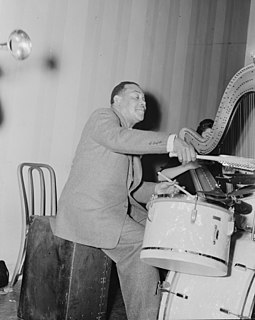A Quote by Peter Carey
In about 1975-76, I lived with a woman in a little hut with some fruit trees, and I had some of the most extraordinary, happy times of my life. Apart from the horrendous Queensland police, who were corrupt and venal, it really was like living in paradise.
Related Quotes
Everything that has ever lived, plant or animal, dates its beginning from the same primordial twitch. At some point in an unimaginably distant past, some little bag of chemicals fidgeted to life. It absorbed some nutrients, gently pulsed, had a brief existence. This much may have happened many times before. But this ancestral packet did something additional and extraordinary. It cleaved itself and produced an heir. A tiny bundle of genetic material passed from one living entity to another, and has never stopped moving since. It was the moment of creation for us all.
I feel a responsibility, as I get older, to be responsible to what I've experienced, to what I've lived and been in a position to witness. I realize now that as a consequence of having lived the life I have, quite apart from the one, as I understand it, lived by most American writers, maybe I now know some things and have some stories to tell that others don't know about or wouldn't be able to tell. Maybe there's an intrinsic value in that lived experience and knowledge, though of course what you do with it is everything.
At the risk, then, of being shunned by some of my gloomier peers, I venture to tell you that writers work like demons, suffer greatly, and are also happy, in unmistakable ways, some of the time. If we had no knowledge of happiness, our novels wouldn't sufficiently resemble real life. Some of us are even made a little bit happy, on occasion, by the writing process itself. I mean, really, if there wasn't some sort of enjoyment to be derived, would any of us keep doing it?
I was fortunately able to avoid getting into any trouble with police. There was - I remember I was 12, and I did something really (laughter) - a couple of friends, Cinco de Mayo - we were off school, and we saw some people looking like they were having a party. And we had a little bit too much time on our hands, and so we figured, as kids, a great idea would be to throw some things over the fence and hit all these people with stuff, like eggs and everything.
I have a most peaceable disposition. My desires are for a modest hut, a thatched roof, but a good bed, good food, very fresh milk and butter, flowers in front of my window and a few pretty trees by my door. And should the good Lord wish to make me really happy, he will allow me the pleasure of seeing about six or seven of my enemies hanged upon those trees.
There were so many bands in New Orleans. But most of the musicians had day jobs, you know -- trades. They were bricklayers and carpenters and cigar makers and plasterers. Some had little businesses of their own -- coal and wood and vegetable stores. Some worked on the cotton exchange and some were porters. They had to work at other trades 'cause there were so many musicians, so many bands. It was the most musical town in the country.
I've spent some time in North and Central Queensland, in fact as recently as yesterday I was in Rockhampton, where the seat of Capricornia is based. I have to tell you that people in Queensland, but particularly regional Queensland, are very concerned about jobs. They are very concerned that the economic future for themselves and their children and their grandchildren should be - should be clear.
I heard a story about a woman who grew up in Texas. When she was having trouble in her life, she would visit her grandmother, who lived nearby and always had a kind word and some wisdom to pass on. One day she was complaining to her grandmother about some situation and her grandmother just turned to her, smiled sadly, and said, "Sometimes, darlin', you've just got to rise above yourself in this life." I've remembered that wise advice many times as I've faced trouble in my life.
From the little reading I had done I had observed that the men who were most in life, who were molding life, who were life itself, ate little, slept little, owned little or nothing. They had no illusions about duty, or the perpetuation of their kith and kin, or the preservation of the State. They were interested in truth and in truth alone. They recognized only one kind of activity - creation.
The extraordinary woman depends on the ordinary woman. It is only when we know what were the conditions of the average woman's life - the number of children, whether she had money of her own, if she had a room to herself, whether she had help bringing up her family, if she had servants, whether part of the housework was her task - it is only when we can measure the way of life and experience made possible to the ordinary woman that we can account for the success or failure of the extraordinary woman as a writer.
Look, I've had four kicks at the can. You've had a tremendous career. We're also happy. We've loved. We've lived. We don't starve. We haven't been shot in the gut. So at that point, I started getting a little more serious about the content we were making and the business and building the business. I also became more serious about life and being happy. I got married, I have kids - I'm happy at a cellular level now.
At the beginning of the 20th century, before the migration began, 90 percent of all African-Americans were living in the South. By the end of the Great Migration, nearly half of them were living outside the South in the great cities of the North and West. So when this migration began, you had a really small number of people who were living in the North and they were surviving as porters or domestics or preachers - some had risen to levels of professional jobs - but they were, in some ways, protected because they were so small.







































